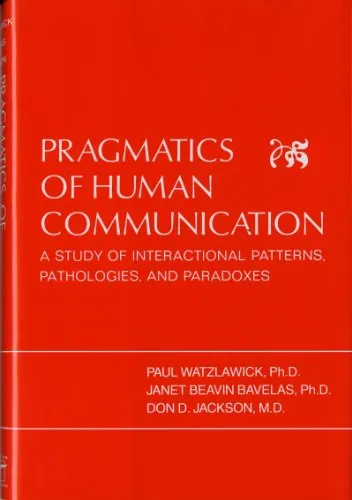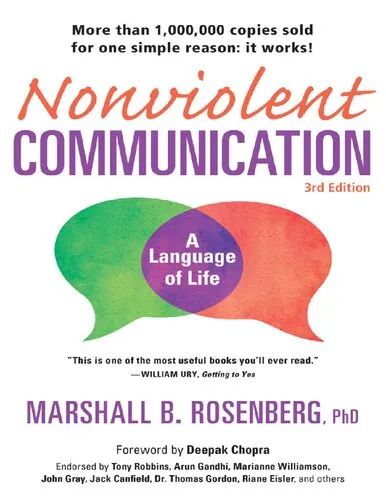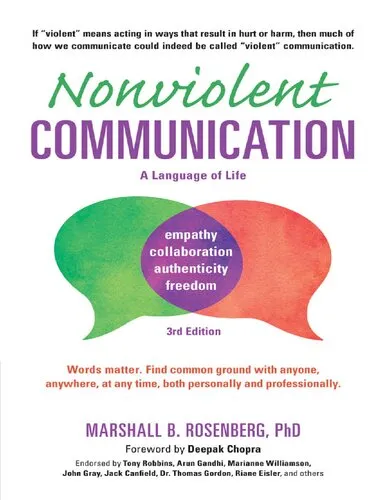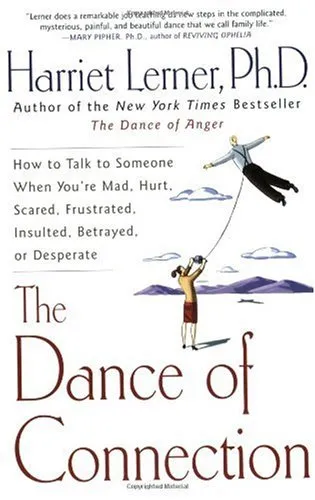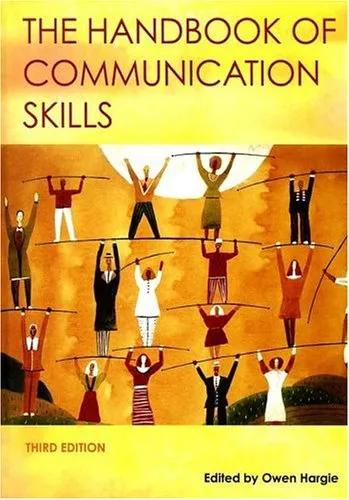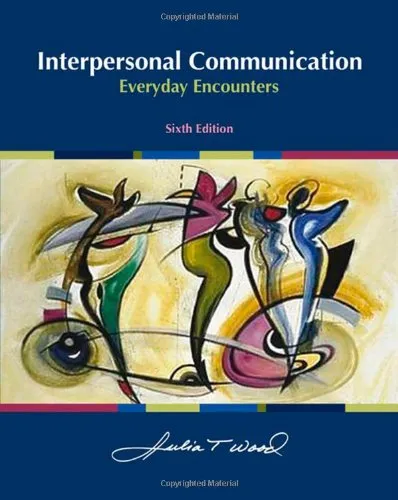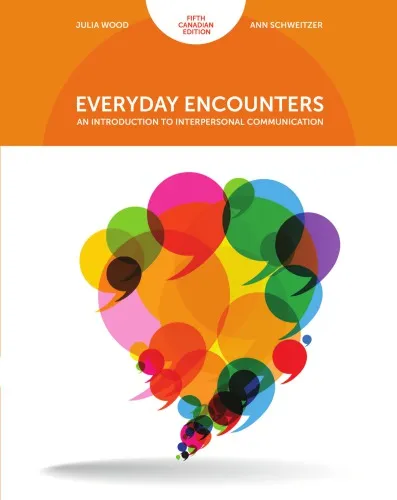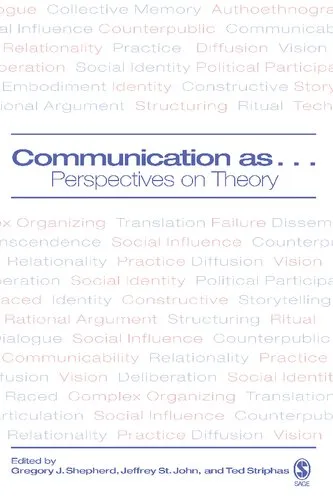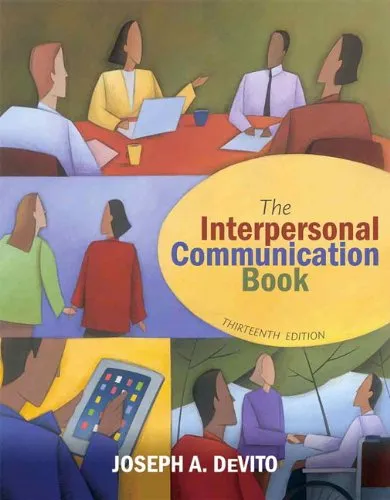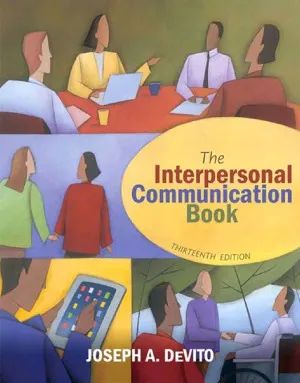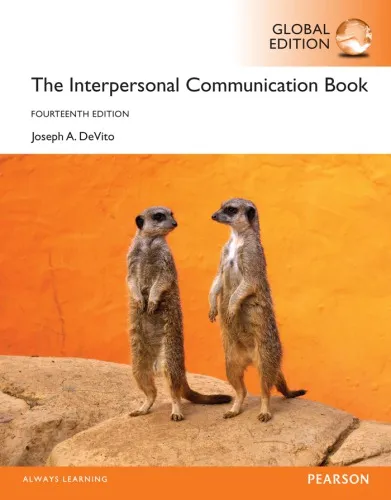Pragmatics of Human Communication: A Study of Interactional Patterns, Pathologies, and Paradoxes
4.2
Reviews from our users

You Can Ask your questions from this book's AI after Login
Each download or ask from book AI costs 2 points. To earn more free points, please visit the Points Guide Page and complete some valuable actions.Related Refrences:
Persian Summary
Introduction to 'Pragmatics of Human Communication: A Study of Interactional Patterns, Pathologies, and Paradoxes'
'Pragmatics of Human Communication: A Study of Interactional Patterns, Pathologies, and Paradoxes' is a profound exploration into the multifaceted world of human communication. Authored by Paul Watzlawick, Janet Helmick Beavin, and Don D. Jackson, this seminal book delves into how humans convey and interpret messages, and how these interactions can often lead to misunderstandings and complexities. Through a blend of psychological insights and communication theory, the book identifies the nuances of interactional dynamics that contribute to both effective and dysfunctional communication patterns.
Detailed Summary of the Book
At its core, the book proposes that human communication is deeply embedded in a matrix of psychological and social processes. It introduces the concept of 'pragmatics', which in this context goes beyond the literal content of messages to explore the impact of context, tone, and relational dynamics. The authors outline a framework where communication is seen as a complex dance of signals, both verbal and nonverbal, that influence perceptions and behavior.
Throughout the book, Watzlawick, Beavin, and Jackson emphasize the systemic and recursive nature of human communication. They explore how communication patterns evolve and sustain themselves over time, often leading to entrenched interactional pathologies such as repetitive arguments and miscommunications. The authors argue that understanding these patterns is crucial for resolving conflicts and improving relational dynamics.
The book is structured to examine various facets of communication including the role of paradoxes and double binds, which are situations where an individual receives contradictory messages. These paradoxes are especially significant in the realm of therapy, influencing both diagnosis and treatment approaches.
Key Takeaways
- Communication is a complex interplay of numerous factors beyond actual speech, including body language, contexts, and perceived relationships.
- Interactional patterns, once established, can be self-perpetuating and challenging to change.
- Paradoxes and double binds play a crucial role in shaping communication dynamics, often leading to confusion and emotional distress.
- Understanding these communication patterns can aid in resolving conflicts and enhancing interpersonal relationships.
Famous Quotes from the Book
"The problem with communication is the illusion that it has been accomplished."
"One cannot not communicate. Every behavior is a kind of communication."
Why This Book Matters
'Pragmatics of Human Communication' is regarded as a foundational text in the field of communication studies and psychotherapy. It offers a distinct perspective on how communication dysfunctions can affect personal and professional relationships. By providing a theoretical framework for understanding these dysfunctions, the authors help readers to deconstruct and iterate the conversations that consistently lead to friction.
The book's insights are particularly valuable to mental health professionals, educators, and anyone engaged in professions that require astute interpersonal communication. It challenges readers to rethink conventional approaches to communication and presents a catalyst for developing healthier and more productive interactional patterns.
In essence, this book provides the tools required to navigate the complex landscape of human interactions, making it essential reading for anyone interested in enhancing their communication skills or understanding the subtle intricacies of human behavior.
Free Direct Download
You Can Download this book after Login
Accessing books through legal platforms and public libraries not only supports the rights of authors and publishers but also contributes to the sustainability of reading culture. Before downloading, please take a moment to consider these options.
Find this book on other platforms:
WorldCat helps you find books in libraries worldwide.
See ratings, reviews, and discussions on Goodreads.
Find and buy rare or used books on AbeBooks.
1650
بازدید4.2
امتیاز0
نظر98%
رضایتReviews:
4.2
Based on 0 users review
Questions & Answers
Ask questions about this book or help others by answering
No questions yet. Be the first to ask!
